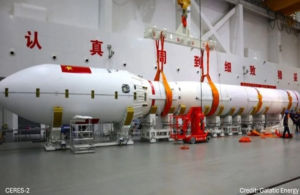Middle East outreach seminar on HCoC in Amman
28 September 2016
On 28 September 2016, the FRS organised, in collaboration with the Arab Institute for Security Studies (ACSIS), a regional outreach seminar in Amman directed towards non-subscribing states in the region. This event was held at the University of Jordan.
AGENDA
WELCOMING REMARKS
- Dr. Ayman KHALIL, Director, ACSIS
- Alexandre HOUDAYER, Secretary General, Foundation for Strategic Research
- Egidijus NAVIKAS, Head of Politics, Press and Information Section, Delegation of the European Union to Jordan
- H.E. Azamat BERDIBAY, Ambassador of Kazakhstan to Jordan
I/ THE HCoC AGAINST THE PROLIFERATION OF BALLISTIC MISSILES: UNIVERSALITY, IMPLEMENTATION & VISIBILITY
- Bruno HANSES, Senior Expert, European External Action Service
- Nurken URMANTAYEV, Counsellor, Department for Multilateral Cooperation, Ministry of Foreign Affairs of Kazakhstan
- Qasim Ali HUSSEIN, Head of the Delivery Means Department at the Iraqi National Monitoring Authority for Non-proliferation, Iraq
- Dr. Bernd KUBBIG, Coordinator, Academic Peace Orchestra Middle East
KEY ISSUES:
- Presentation by current HCoC Chair of progress and challenges relating to universality, implementation, and visibility
- The role of the Code and other TCBMs in regional dynamics and the regional security environment: the view of a Middle East signatory country
- The concrete meaning of implementing the HCoC, as perceived by a signatory state
- Successes and challenges of the HCoC in today’s environment
II/ CURRENT TRENDS CONCERNING SPACE LAUNCH TECHNOLOGIES & CAPABILITIES: DYNAMICS OF SPACE LAUNCH AND FUTURE USES OF SPACE APPLICATIONS
- Alexandre HOUNDAYER, Secretary General, Foundation for Strategic Research
- Karlygash AKHMETOVA, Senior expert of the International Space Law Directorate of the Aerospace Committee, Kazakhstan


KEY ISSUES:
- The characteristics of the development of space launch technologies
- The evolution of the satellite industry and its impact upon the space launch sector
- Interactions between the Code and a civilian space programme
III/ CURRENT TRENDS CONCERNING BALLISTIC MISSILES TECHNOLOGIES AND PROLIFERATION: GENERAL & REGIONAL VIEWS
- Gawdat BAHGAT, National Defense University, United States
- Dennis GORMLEY, University of Pittsburgh, United States
- Dr. Sitki EGELI, Izmir University of Economics, Turkey
KEY ISSUES:
- The current regional state of play in the ballistic-missile field
- Issues and challenges arising from this context
- Proliferation rationales in the Middle East
- Issues arising from dual-use technologies and related strategies
- Comparative perspectives between the implementation and challenges of the HCoC and the WMDFZ in the Middle East Initiative
KEYNOTE SPEAKER:
- Al Sharif Nasser BIN NASSER, Head of the CBRN CoE in Jordan
- Fighting WMD Proliferation in the Middle East
CONCLUDING REMARKS
- Dr. Jean-François DAGUZAN, Deputy Director, FRS
- Dr. Ayman KHALIL, Director, ACSIS
- Bruno HANSES, EEAS
The seminar was echoed in the following article published in the Jordanian newspaper Ad-Dustour
It was also mentioned on Jordanian national television:


